I got a few questions following this post, when I mentioned that I was starting the fructans challenge phase.
In the aforementioned post I listed what foods contained fructans (garlic, onion, wheat, inulin, etc.), but maybe I should back up even more. I have a chemistry background, but for those of you who do not, I’ll try to simplify this as best as I can without abandoning the key concepts or overwhelming you.
Carbohydrate: a macronutrient in food that is made up with a single sugar molecule or multiples of them in various forms. [protein and fat are the two other macronutrients, fyi]
Many foods have macronutrients in combination (bless the chickpea and it’s amazing carb:protein:fat ratio), but I’m going to stick to pure carbs today.
Sugars are the most basic carbohydrates, consisting of monosaccharides, disaccharides, and polyols.
- monosaccharides – one molecule (ie glucose, fructose, galactose)
- disaccharides – two molecules (ie sucrose [table sugar], maltose, lactose [milk sugar])
- polyols – sugar alcohols (sorbitol, mannitol, xylitol)
- high fructose corn syrup
Complex carbohydrates are the more…well…complex, carbohydrates, consisting of oligosaccharides and polysaccharides.
- oligosaccharides – a few (3-10) molecules (fructans, galactans)
- polysaccharides – multiple molecules (fructans, galactans)
Examples: starches (rice, wheat, corn, potatoes) and fiber (whole grains, dried peas/beans, fruit, vegetables).
Fermentable, Oligo, Di, Mono-saccharides And Polyols = FODMAPs
So where do the fructans fit in?
Fructans are a type of oligosaccharide (a complex carbohydrate), made up of multiple fructose molecules. They occur naturally in foods like artichokes, asparagus, onions, leeks, and garlic. You also may see them on an ingredient label as FOS (which stands for fructo-oligosaccharides) or inulin. And then there’s wheat. As I mentioned before, wheat is one of the main sources of fructans in the American diet.
So there you have it…let the trial and error with fructans continue!
Fructan challenge food of the day: cornbread.
With a side of winter squash.
Truthfully, the squash was butternut and acorn (which are in the FODMAPS free column), but they are still starchy, which increases the fructan load ever so slightly. Summer squash, on the other hand, is supposed to be eaten in moderation. I guess I’ll see what zucchini does to me when I get around to testing it out.
[As an FYI, a few people have mentioned to me that they’ve had difficulty digesting winter squash…so if you’re experimenting with FODMAPS proceed with caution. Personally, I haven’t had issues, so I’m considering squash to be ok.]
I used this recipe, making a few alterations (no flax or fresh corn, increased cornmeal). Because only a portion of it was wheat flour, I figured it would be a good test for my digestive system.
The consistency turned out a bit more dense due to my tweaking the proportion of cornmeal to wheat, but otherwise it was delicious.
I had one square with dinner, and then an hour(ish) later I had a second piece with some chai tea.
Usually my sweet tooth kicks in when dessert time rolls around. In other words, the cornbread was THAT good.
Regarding my GI reaction to the wheat; hard to say. I rarely have immediate responses to food, so it’s difficult to determine how my body took it…but I’m keeping track of everything (before, during, & after) so I can try and put it all together later.
I am hoping that the union of my new knowledge and experiences offers up something constructive because at the moment it’s frustrating as all hell… Reading about the way certain foods affect those with an abnormal digestive system (and then feeling the proof in application) just confirms the fact that I am abnormal. But I still don’t know WHY. And yes, knowledge is power, but what good does it do to know the “what” without the “why”.
Honestly, as much as I enjoy educating myself on the chemical components of foods, I can’t help but wonder if there’s ever going to be some huge breakthrough that brings an end to IBS suffering. Sure, it’s great to know what foods have FODMAPS (and it has been really nice to have some symptom relief, so I don’t want to downplay the importance of what I’ve learned), but how come they are so difficult for someone with IBS to digest?
It’s like having the answer to an unknown question. I still want the answer, but I want to know the question too!
How dreadful knowledge of the truth can be when there’s no help in truth!
SOPHOCLES, Oedipus Rex
Exactly.
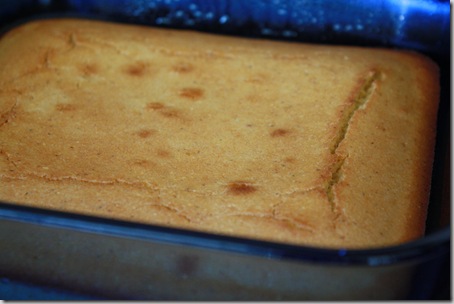
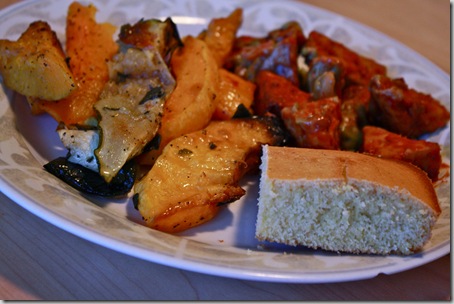
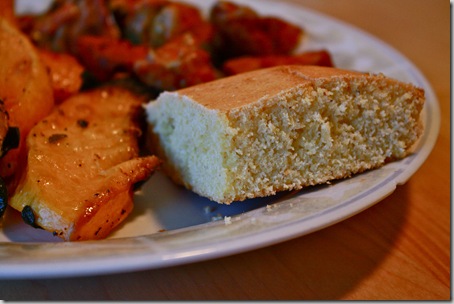
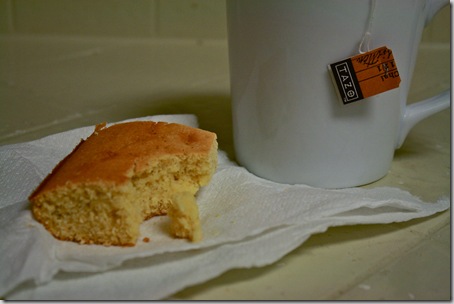
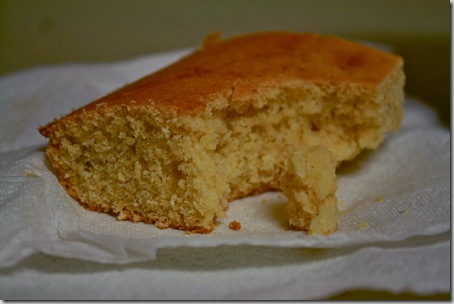
Funny! I was just thinking about that Oedipal Rex quote! Kidding. I’m not that smart. I don’t remember half of what I read in college.
I just wish there were clear questions and clear answers to everything, actually. I’ve been going through some things (off the blog!) that have been draining, and all I want is a clear answer and I’d be fine.
Anyway, I am happy to see that FODMAPS has worked out so well for you. I also feel that no plan is ever going to fit every single person. I don’t even think a plan could help the same person day-to-day. I really feel that there are some days I’m fine with dairy and some days it’s just not happening.
I wasn’t really going anywhere with that, just blabbing on. Basically, I feel you!
I totally understand how frustrating this is for you because I’m in the exact same boat.
I looked into FODMAPS only to find that a heap of foods I’m intolerant to, were on the friendly lists – dwindling my food choices further and further down. At first I was really annoyed, I mean, having food intolerances which mean you can’t follow a food intolerance management plan?! But then I started my own elimination diet, based on what I knew I could and couldn’t have and cutting out suspect foods, only leaving what I knew I could tolerate.
I’ve had a few bumps and hiccups along the way and it’s been mighty frustrating, but I just have to keep reminding myself that slow and steady wins the race. Now i’m reintroducing foods it can be a little bit of a roller coaster – foods you feel extremely confident about eating can leave you hunched over in pain and ones you think haven’t got a chance go down a treat.
I always say I wish my stomach could just give me a list of foods I can/can’t eat – but since it seems to be illiterate, I have to be the detective.
you are hilarious. i enjoy your comments, blabbing or not. i meant to comment the other day on your post mentioning musicals because you totally made me add wicked and phantom back into my workout mixes. i dont belong to a gym anymore, so i feel its acceptable to sing along as i run on the beach. normal right?
anywayyyyy…i hope all is well with you otherwise. actually, i have a ton of stuff (off the blog) that is stressing me out too, so that probably doesnt help my GI system. but holler at me if you wanna chat. actually, i have to write you an email soon anyway.
hey kristy, thanks so much for commenting and sharing. its so so frustrating, huh. i definitely know what you mean, because some of my favorite foods are fodmaps. and then there are things i will supposedly tolerate, but have zero interest in eating. it would be perfect if my GI tract could just tell me what its comfortable with.
Hey Elise, my boyfriend has IBS and I’ve showed him some of your posts. He is really interested in finding what triggers his symptoms.
It’s really helped ME understand more about his issues and to be more sympathetic and understanding. It also makes me want to help him find some kind of relief, because at this point he just suffers.
Thanks for being so thorough in your posts about it all! I hope it works for you and know that you’re helping others in their pursuit of living a normal, healthy life. 🙂
I really think it’s all due to our intestinal flora. But your flora is supposed to change based on what you eat (vegans having different flora than mcdonalds-lovers) to accommodate the changes. I feel like our flora isn’t changing like its supposed to but I have no idea why.
I’m going to give squash another chance because my gi system was so upset by the red pepper flakes that I think it confounded the results…
Ah, chemistry. One part of my dietetics background I do not miss. But alas, it’s times like this that you realize that the stuff is actually useful to know.
I had never heard of FODMAPS prior to reading your blog, so thanks for keeping me informed:)
thank you for sharing post like this, i always learn something from you 🙂 it is so crazy all the different things we have to be aware of with food…chemicals, sugar, starches, fat, etc….wish it could be easier haha
I’m glad you’re out of elimination and into experimenting! Hopefully you’ll find something that triggers symptoms so you can get some relief.
You pretty much summed up how I felt during FODMAPS. I’d try introducing a food, but I couldn’t tell whether it was affecting me or not. It seems like it’s so random much of the time. I wish it could be easier too!
Pingback: Reading between the lines
This post is amazing!! Can you do more posts like this? I love learning about the chemical components of food as well and this was incredibly informative. Loved it!!
Pingback: Beach priorities
Pingback: Clean Food Cornbread (with a side of eggs)
HI
I totally love this and u sum up my experiences perfectly, its exactly my journey. Im in Oz and work in a health food shop and interestingly I find more and more customers coming in with GI problems and I know they have been helped by my suggestions so far but equally I am frustrated and thirst for more knowledge. I have IBS and have been searching for 15years to find the foods that agree with me. Ive only recently come across the FODMAPS and it a BIG solution for me althought not totally. Ive always known I felt ill after fruit from when I was vegan but people did think I was crazy. Ive never eaten it and knowledge of the fructans helps…Im also diary and yeast free, low sugar.
I would love your comments on starch as that Im still exploring. I find too starchy is never good for me and if i only eat meat/fish/chicken and quinoa Im GI happy or my almond meal muffins. Please comment : )
hi cath! thanks for commenting. i have similar GI feelings except i dont have much of a palate for meat since i grew up with very little of it. starchy is ok for me – i dont have many problems with potatoes, sweet potatoes, or corn, but i know many others do. i also tolerate avocado fine, but lots of others seem to have trouble with the polyols. its complicated for sure…
Pingback: FODMAPS, GAPS, Primal, Paleo, SCD « FODMAPS diet